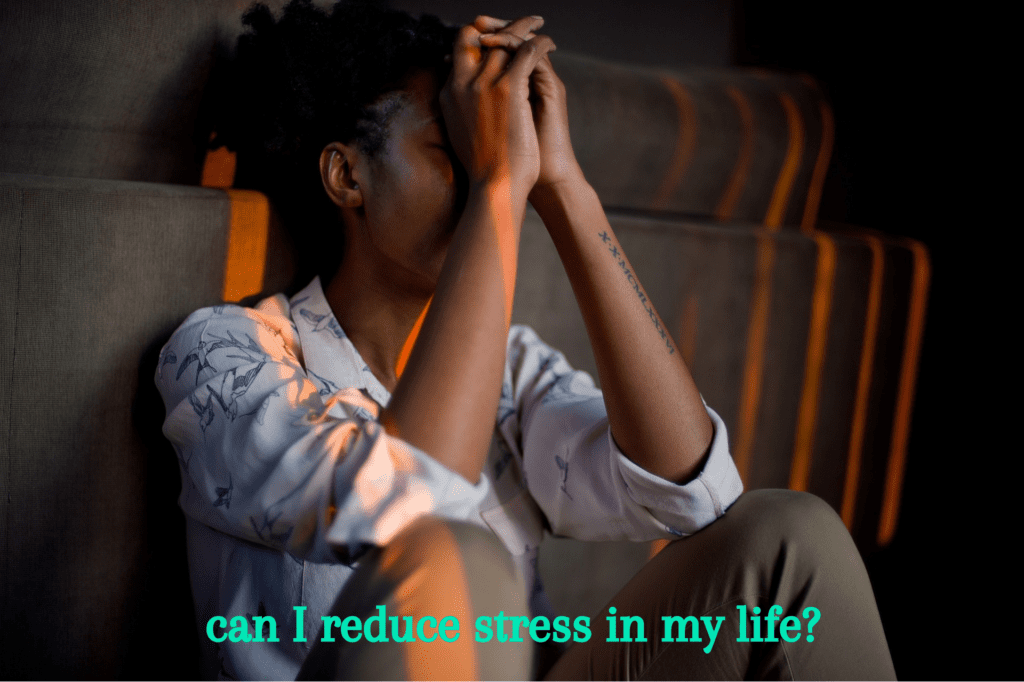Introduction
Introduction
Come let you know “How do I check my stress level ?” and what is the stress. Nowadays it is the most open discussable topic for people.
Stress, the six-letter word many fear, manifests itself in a variety of situations, whether it’s stressful work interactions or family pressures. It is a natural response to life’s challenges, affecting behavior, mood, and overall well-being. Nearly one-third of adults feel overwhelmed by stress, and chronic stress poses health risks.
Stress is the body’s reaction to stressful situations, affecting physical, emotional, and psychological aspects. How stress is handled greatly affects overall health. Identifying stressors and adopting effective coping strategies can reduce their negative psychological stress effects.
Come let you know “How do I check my stress level ?” and what is the stress. Nowadays it is the most open discussable topic for people.
Stress, the six-letter word many fear, manifests itself in a variety of situations, whether it’s stressful work interactions or family pressures. It is a natural response to life’s challenges, affecting behavior, mood, and overall well-being. Nearly one-third of adults feel overwhelmed by stress, and chronic stress poses health risks.
Stress is the body’s reaction to stressful situations, affecting physical, emotional, and psychological aspects. How stress is handled greatly affects overall health. Identifying stressors and adopting effective coping strategies can reduce their negative psychological stress effects.






What is psychological stress?
What is psychological stress?
The definition of psychological stress includes emotional responses to external stimuli that can cause metabolic changes in the body. This psychological stress effect involves the release of hormones such as noradrenaline and cortisol that affect mental and physical well-being.
People react differently to stress, with some finding certain situations uplifting and others perceiving them as stressful. Psychological stress is a concern when it affects a person’s health and overall well-being.
The definition of psychological stress includes emotional responses to external stimuli that can cause metabolic changes in the body. This psychological stress effect involves the release of hormones such as noradrenaline and cortisol that affect mental and physical well-being.
People react differently to stress, with some finding certain situations uplifting and others perceiving them as stressful. Psychological stress is a concern when it affects a person’s health and overall well-being.
Stress factors
Stress factors
External Stressors (Triggers):
- Financial stress, such as insufficient funds for a mortgage or mortgage
- Parenting or family stress, such as caring for a sick child or parent
- Stressful things at school or work, such as upcoming exams or important presentations
- Political stress, associated with living in a divided political environment
- Health stress, such as receiving news of a medical illness
- Epidemic or natural disaster
- Local violence or war
- Discrimination or harassment
- Social pressures, such as adherence to gender roles or cultural expectations
- Perfectionism
- Poor self-talk
- Strong thinking
External Stressors (Triggers): .
- Financial stress, such as insufficient funds for a mortgage or mortgage
- Parenting or family stress, such as caring for a sick child or parent
- Stressful things at school or work, such as upcoming exams or important presentations
- Political stress, associated with living in a divided political environment
- Health stress, such as receiving news of a medical illness
- Epidemic or natural disaster
- Local violence or war
- Discrimination or harassment
- Social pressures, such as adherence to gender roles or cultural expectations
- Perfectionism
- Poor self-talk
- Strong thinking
The effects of stressors and psychological distress may vary depending on personality, coping skills, and availability of support, highlighting the subjective nature of stressful experiences
The effects of chronic stress are:
- Pain
- Lack of energy
- He becomes irritable
- Too much or too little food
- Alcohol or drug abuse
- Headache
- Digestive problems
- Skin problems
- Insomnia
- Heart rate
- If you feel overwhelmed
- Feeling out of control
- Depression
The effects of stressors and psychological distress may vary depending on personality, coping skills, and availability of support, highlighting the subjective nature of stressful experiences
The effects of chronic stress are:
- Pain
- Lack of energy
- He becomes irritable
- Too much or too little food
- Alcohol or drug abuse
- Headache
- Digestive problems
- Skin problems
- Insomnia
- Heart rate
- If you feel overwhelmed
- Feeling out of control
- Depression






Signs and Symptoms
Signs and Symptoms
When the body is stressed, it releases stress hormones like epinephrine and norepinephrine, increasing heart rate, blood pressure, and blood sugar levels in response to immediate threats The severity of psychological stress symptoms varies depending on what it causes with the person for example stress symptoms in women.
Emotional consequences
- Difficulty concentrating
- Memory problems
- Bad assumptions
- Lack of confidence
- Disturbing
- Difficult to make decisions
Emotional symptoms
- Change of mindset
- Irritable temper
- depression
- Feeling stressed, anxious, or scared
- Struggling
- Inability to relax
Physical symptoms
- headache
- Muscle tension
- Digestive problems (nausea, vomiting, constipation)
- Decreased libido
- Increased heart rate
- High blood pressure
fatigue
Behavioral change
- Eating or sleeping patterns change
- Withdrawal from social life
- Muscle spasms (fidgeting, biting nails, grinding teeth)
- Heavy use of caffeine, alcohol, tobacco, and other drugs
- Decreased work or academic performance
When the body is stressed, it releases stress hormones like epinephrine and norepinephrine, increasing heart rate, blood pressure, and blood sugar levels in response to immediate threats The severity of psychological stress symptoms varies depending on what it causes with the person for example stress symptoms in women.
Emotional consequences
- Difficulty concentrating
- Memory problems
- Bad assumptions
- Lack of confidence
- Disturbing
- Difficult to make decisions
Emotional symptoms
- Change of mindset
- Irritable temper
- depression
- Feeling stressed, anxious, or scared
- Struggling
- Inability to relax
Physical symptoms
- headache
- Muscle tension
- Digestive problems (nausea, vomiting, constipation)
- Decreased libido
- Increased heart rate
- High blood pressure
fatigue
Behavioral change
- Eating or sleeping patterns change
- Withdrawal from social life
- Muscle spasms (fidgeting, biting nails, grinding teeth)
- Heavy use of caffeine, alcohol, tobacco, and other drugs
- Decreased work or academic performance
Different types of stress
Different types of stress
Stress is a universal experience, but it varies. There are two main types of acute (short-term) and chronic (long-term) stress
Severe anxiety
- Temporary and triggered by everyday challenges or problems.
- The body’s natural stress response is activated, but disappears once the stress is dealt with.
- Examples include forgetting keys, running late, or encountering unexpected obstacles.
- It can be uncomfortable but tends to evoke positive reactions and attention.
Chronic depression
- Long-term responses to chronic stressors.
- Stressors are persistent and difficult to resolve.
- Examples include poverty, family dysfunction, chronic abuse, chronic illness, caregiving, and a toxic work environment.
- Associated with feelings of helplessness, anxiety, depression, and poor physical health outcomes.
Stress is a universal experience, but it varies. There are two main types of acute (short-term) and chronic (long-term) stress
Severe anxiety
- Temporary and triggered by everyday challenges or problems.
- The body’s natural stress response is activated, but disappears once the stress is dealt with.
- Examples include forgetting keys, running late, or encountering unexpected obstacles.
- It can be uncomfortable but tends to evoke positive reactions and attention.
Chronic depression
- Long-term responses to chronic stressors.
- Stressors are persistent and difficult to resolve.
- Examples include poverty, family dysfunction, chronic abuse, chronic illness, caregiving, and a toxic work environment.
- Associated with feelings of helplessness, anxiety, depression, and poor physical health outcomes.
Treating psychological stress
Treating psychological stress
It includes taking tailored strategies for the optimization of individual preferences and the treatment of psychological stress. Although complete elimination of stressors is not beneficial, their impact can be reduced through the following measures.
Lifestyle changes
- Eat a healthy diet: Eat a balanced diet rich in legumes, vegetables, lean protein and whole grains.
- Adequate sleep: Have a consistent sleep schedule, with 7 hours of sleep ahead of each night.
- Exercise regularly: Aim for about 2.5 hours of exercise per week to reduce stress.
- Limit alcohol intake: Drink or abstain to avoid adverse health effects.
- Quit smoking: Smoking increases stress; Quitting promotes overall well-being.
It includes taking tailored strategies for the optimization of individual preferences and the treatment of psychological stress. Although complete elimination of stressors is not beneficial, their impact can be reduced through the following measures.
Lifestyle changes
- Eat a healthy diet: Eat a balanced diet rich in legumes, vegetables, lean protein and whole grains.
- Adequate sleep: Have a consistent sleep schedule, with 7 hours of sleep ahead of each night.
- Exercise regularly: Aim for about 2.5 hours of exercise per week to reduce stress.
- Limit alcohol intake: Drink or abstain to avoid adverse health effects.
- Quit smoking: Smoking increases stress; Quitting promotes overall well-being.
Ways to relax
Ways to relax
- Gentle exercises: Include stretching exercises or light exercises.
- Progressive muscle relaxation: Release tension through systematic muscle relaxation.
- Deep breathing: Do breathing exercises.
- Meditation or concentration: Provide peace of mind and clarity.
- Nature relaxation: Spend time outdoors to relax.
Interpersonal communication
- Communicate: Share your feelings and concerns with trusted friends or family members.
- Gentle exercises: Include stretching exercises or light exercises.
- Progressive muscle relaxation: Release tension through systematic muscle relaxation.
- Deep breathing: Do breathing exercises.
- Meditation or concentration: Provide peace of mind and clarity.
- Nature relaxation: Spend time outdoors to relax.
Interpersonal communication
- Communicate: Share your feelings and concerns with trusted friends or family members.
Medical interventions
Medical interventions
- Cognitive Behavioral Therapy (CBT): Understand and restructure the thoughts that affect emotions and behavior.
- Professional support: Contact mental health professionals about customized interventions, including talk therapy or medication.
These advances enable individuals to develop effective coping strategies and progressively reduce the impact of psychological stress on their well-being.
- Cognitive Behavioral Therapy (CBT): Understand and restructure the thoughts that affect emotions and behavior.
- Professional support: Contact mental health professionals about customized interventions, including talk therapy or medication.
These advances enable individuals to develop effective coping strategies and progressively reduce the impact of psychological stress on their well-being.
Prevention of prevention
Prevention of prevention
Take precautions to effectively reduce mental stress. Consider these preventive measures in a simple demonstration format:
- Manasa timeline
- Appropriate boundaries
- Social support networks
- Positive self-talk
- Intellectual resources
- Regular exercise
- A balanced diet
- Adequate sleep
Implementing these resources can help to develop a more dynamic and resilient approach to psychological stress.
Psychological stress is a response to everyday challenges, affecting emotional and physical well-being. When addressed with lifestyle modifications such as exercise and relaxation, the individual may seek alternative coping strategies or seek talk therapy to better manage stress.
Take precautions to effectively reduce mental stress. Consider these preventive measures in a simple demonstration format:
- Manasa timeline
- Appropriate boundaries
- Social support networks
- Positive self-talk
- Intellectual resources
- Regular exercise
- A balanced diet
- Adequate sleep
Implementing these resources can help to develop a more dynamic and resilient approach to psychological stress.
Psychological stress is a response to everyday challenges, affecting emotional and physical well-being. When addressed with lifestyle modifications such as exercise and relaxation, the individual may seek alternative coping strategies or seek talk therapy to better manage stress.
FAQ
FAQ
- How do you measure stress level?
Ans: Brain wave tests
In a 2020 study , researchers looked at how brain waves measured with electroencephalography (EEG) testing can predict stress levels. They found that alpha asymmetry could be a relevant and useful biomarker of stress. Alpha asymmetry is an imbalance of alpha brain waves on both sides of the brain.
- What is normal stress level?
Ans: Stress levels range from 0 to 100, with 0 to 25 being a relaxed state, 26 to 50 a low-stress state, 51 to 75 a moderate-stress state, and 76 to 100 a high-stress state If you notice your stress levels can help you identify stressful times in your day.
- What are the 5 levels of stress?
Ans: stress aspects. If you are under stress, it is important to know. If left unchecked, stress can cause physical and emotional damage or trauma. As you can see, the five stages of stress are as follows: Alarm, Resistance, Recovery, Adaptation, and Burnout.
- How to stop stress?
Ans: 7 tips to avoid stress
- Take care of yourself. Avoid drugs and alcohol as they can increase stress. …
- Start relaxing. …
- Take breaks when necessary. …
- Seek social support. …
- Connect socially. …
- Adopt appropriate action. …
- Give back to others.
- How can I reduce stress fast?
Ans: It’s a quick way to de-stress for everything from eating chocolate to meditating. Taking slow, deep breaths can help lower blood pressure and heart rate. Pranayama breathing is a yoga technique that involves breathing through one nostril at a time to relieve anxiety.
- What is highest stress level?
Ans: Burnout: This is the final and dangerous stage of stress where the chances of hospitalization due to depression increase dramatically. The stress level in this category is between 80-100.
7.Does crying relieve stress?
Ans: Crying releases stress, so it’s a great practice to stay mentally healthy.
8.Which job is most stressful?
Ans: Very complex projects
- Military personnel.
- Professional policing.
- Fire Extinguisher.
- Social worker.
- Reporters.
- Newspaper reporters.
- Emergency dispatcher.
- Mental health counselor.
- Why do I cry so easily?
Ans: This type of crying can be a symptom of a mental illness such as hot flashes, anxiety, or depression. Instead, it can be caused by a hormonal imbalance or a neurological disorder. If repetitive crying for no apparent reason is a concern, see a doctor for a diagnosis or a referral to a mental health professional.
- How can I be strong emotionally?
Ans: Emotional strength
- Don’t be so discouraged by setbacks.
- Be more flexible about change.
- Develop the skills to identify and articulate their needs.
- Focus on solving the obstacle rather than on the obstacle itself.
- Learn from mistakes and criticism.
- Have the ability to see a great perspective in a difficult situation.
- How do you measure stress level?
Ans: Brain wave tests
In a 2020 study , researchers looked at how brain waves measured with electroencephalography (EEG) testing can predict stress levels. They found that alpha asymmetry could be a relevant and useful biomarker of stress. Alpha asymmetry is an imbalance of alpha brain waves on both sides of the brain.
- What is normal stress level?
Ans: Stress levels range from 0 to 100, with 0 to 25 being a relaxed state, 26 to 50 a low-stress state, 51 to 75 a moderate-stress state, and 76 to 100 a high-stress state If you notice your stress levels can help you identify stressful times in your day.
- What are the 5 levels of stress?
Ans: stress aspects. If you are under stress, it is important to know. If left unchecked, stress can cause physical and emotional damage or trauma. As you can see, the five stages of stress are as follows: Alarm, Resistance, Recovery, Adaptation, and Burnout.
- How to stop stress?
Ans: 7 tips to avoid stress
- Take care of yourself. Avoid drugs and alcohol as they can increase stress. …
- Start relaxing. …
- Take breaks when necessary. …
- Seek social support. …
- Connect socially. …
- Adopt appropriate action. …
- Give back to others.
- How can I reduce stress fast?
Ans: It’s a quick way to de-stress for everything from eating chocolate to meditating. Taking slow, deep breaths can help lower blood pressure and heart rate. Pranayama breathing is a yoga technique that involves breathing through one nostril at a time to relieve anxiety.
- What is highest stress level?
Ans: Burnout: This is the final and dangerous stage of stress where the chances of hospitalization due to depression increase dramatically. The stress level in this category is between 80-100.
7.Does crying relieve stress?
Ans: Crying releases stress, so it’s a great practice to stay mentally healthy.
8.Which job is most stressful?
Ans: Very complex projects
- Military personnel.
- Professional policing.
- Fire Extinguisher.
- Social worker.
- Reporters.
- Newspaper reporters.
- Emergency dispatcher.
- Mental health counselor.
- Why do I cry so easily?
Ans: This type of crying can be a symptom of a mental illness such as hot flashes, anxiety, or depression. Instead, it can be caused by a hormonal imbalance or a neurological disorder. If repetitive crying for no apparent reason is a concern, see a doctor for a diagnosis or a referral to a mental health professional.
- How can I be strong emotionally?
Ans: Emotional strength
- Don’t be so discouraged by setbacks.
- Be more flexible about change.
- Develop the skills to identify and articulate their needs.
- Focus on solving the obstacle rather than on the obstacle itself.
- Learn from mistakes and criticism.
- Have the ability to see a great perspective in a difficult situation.

